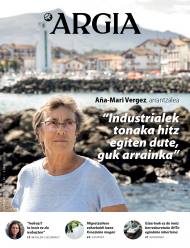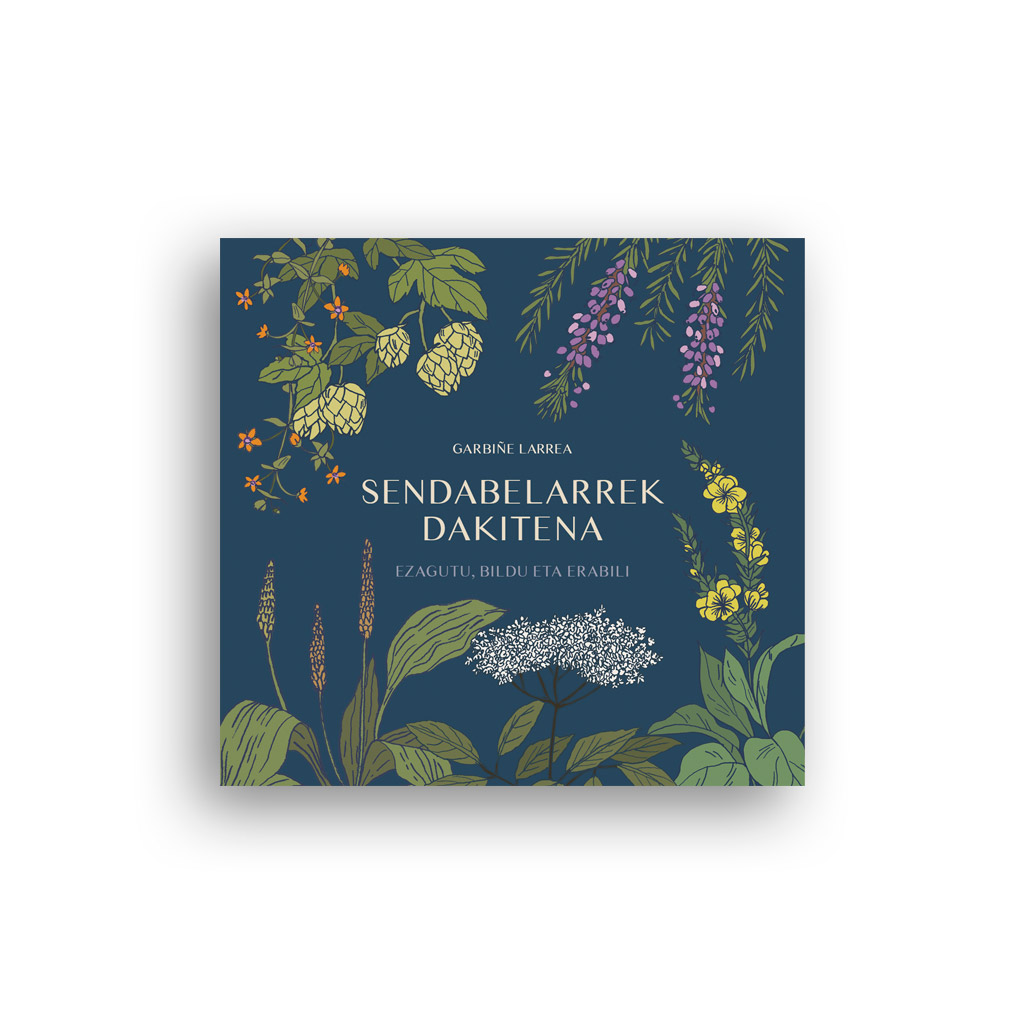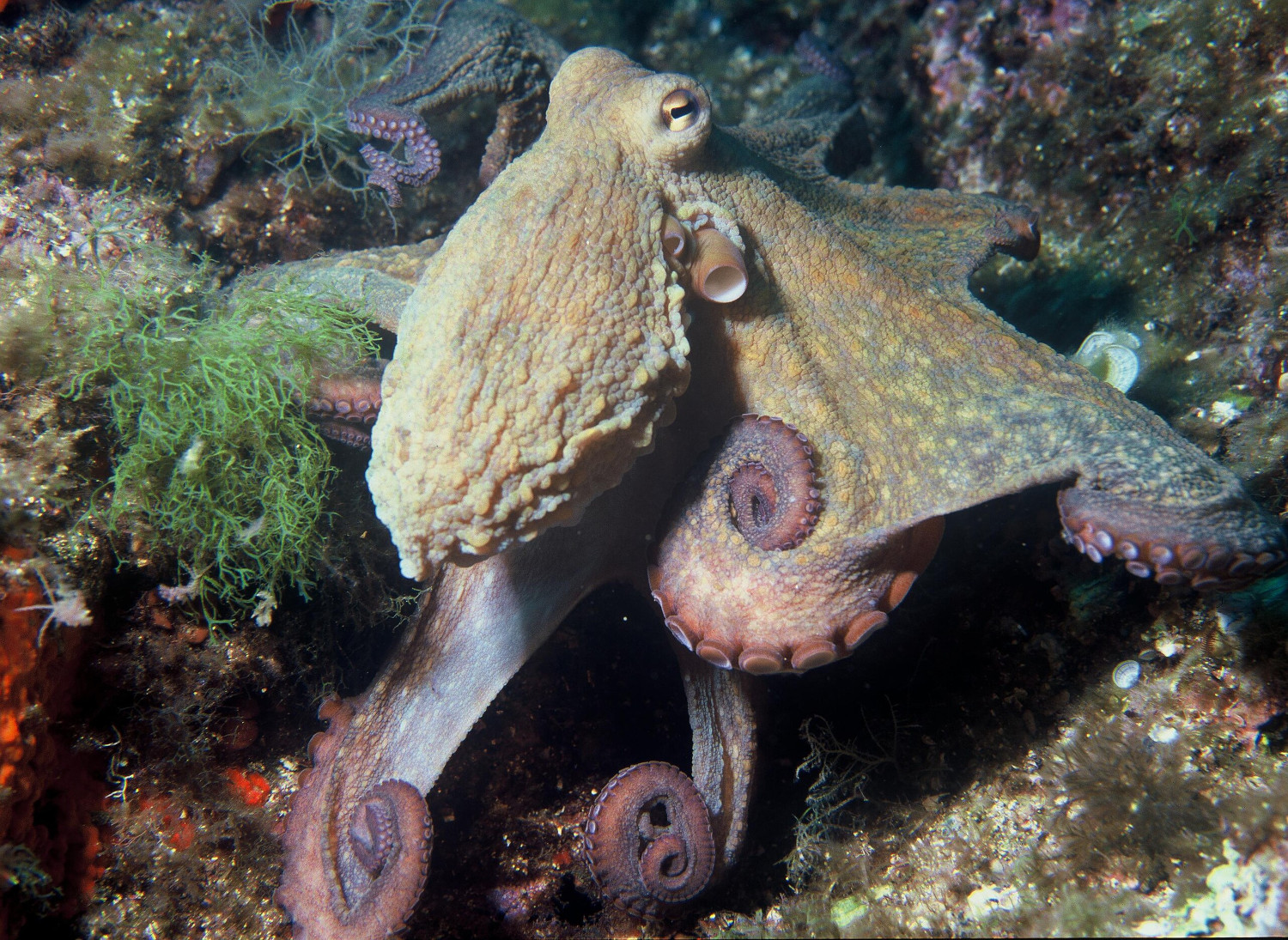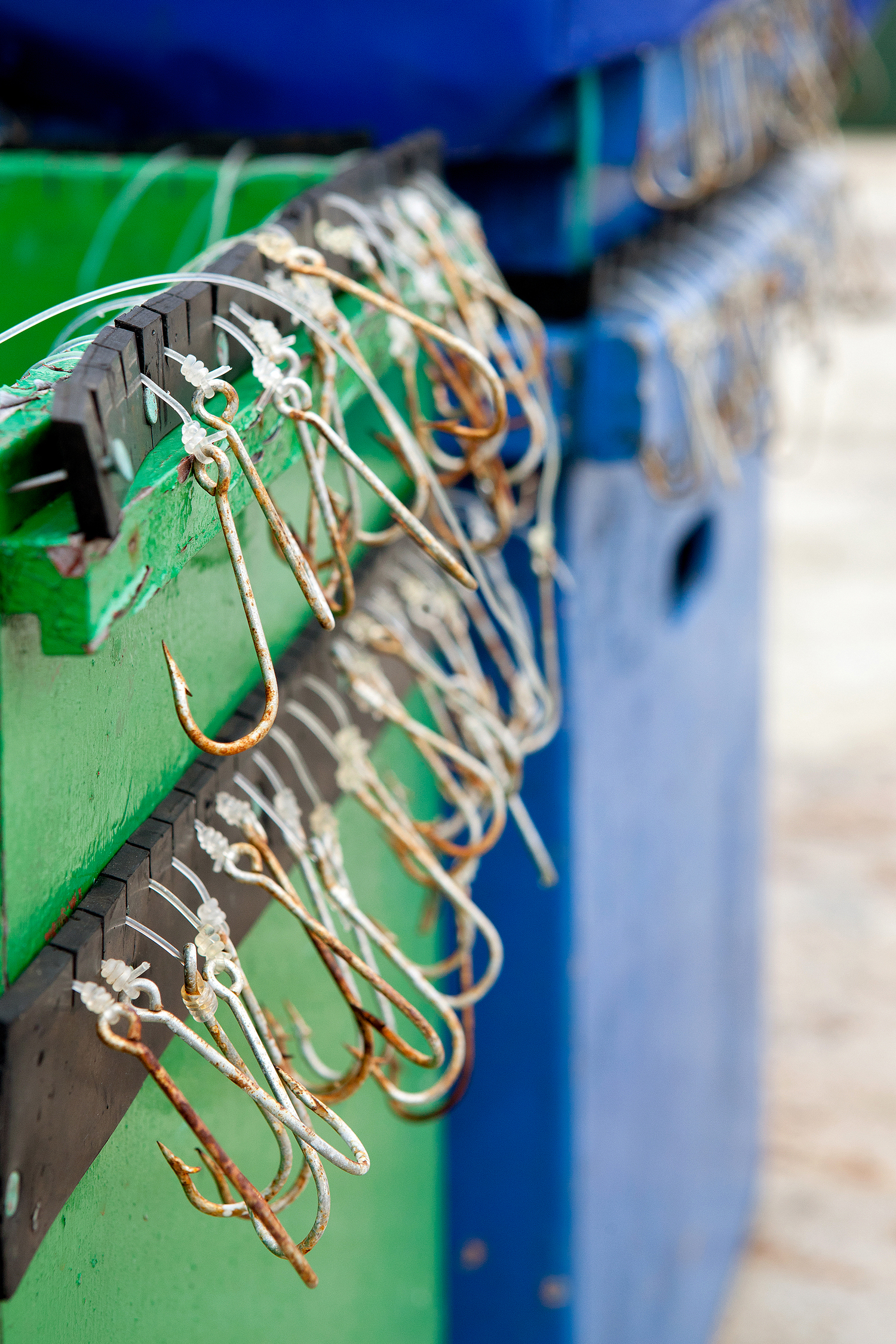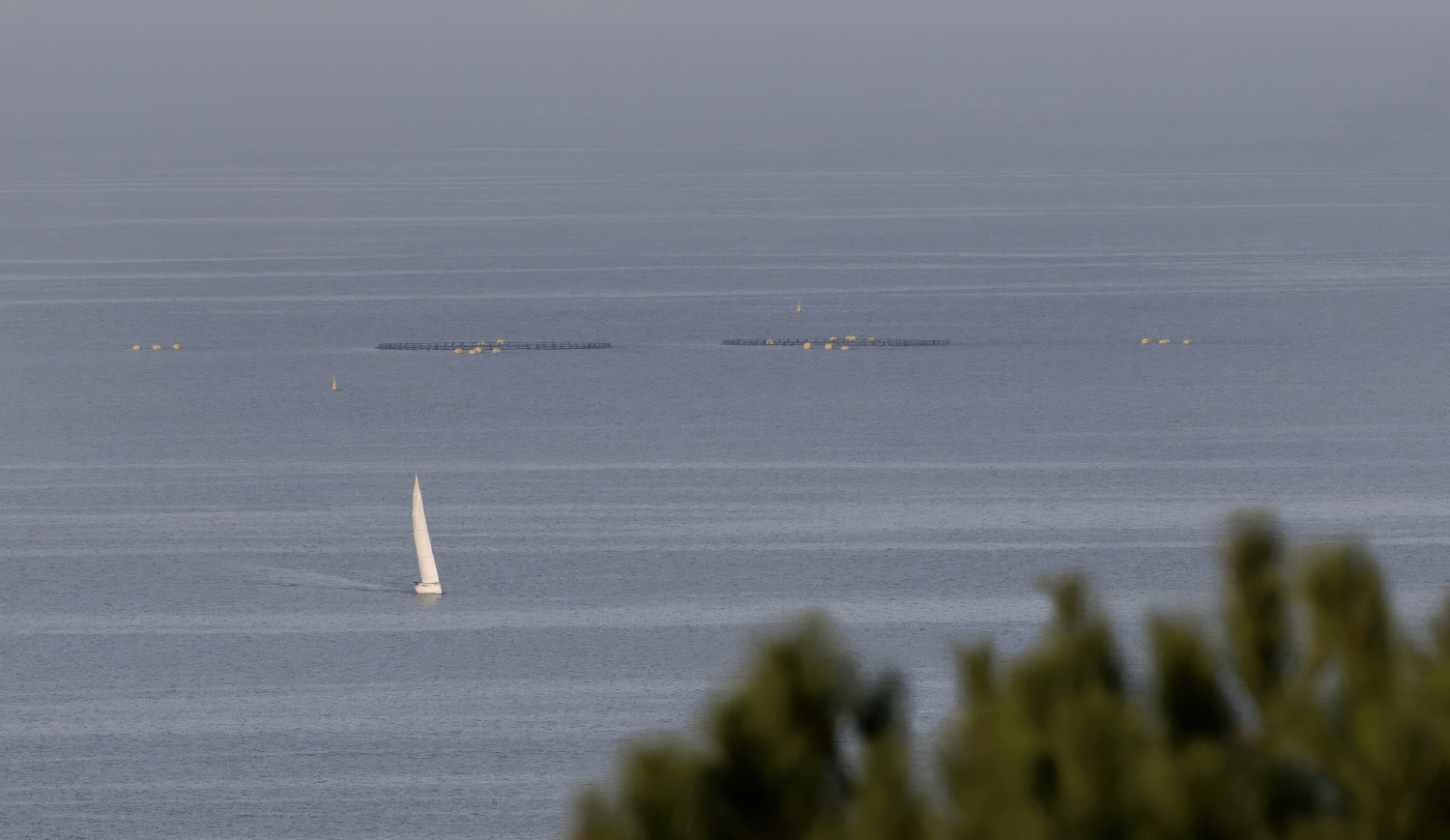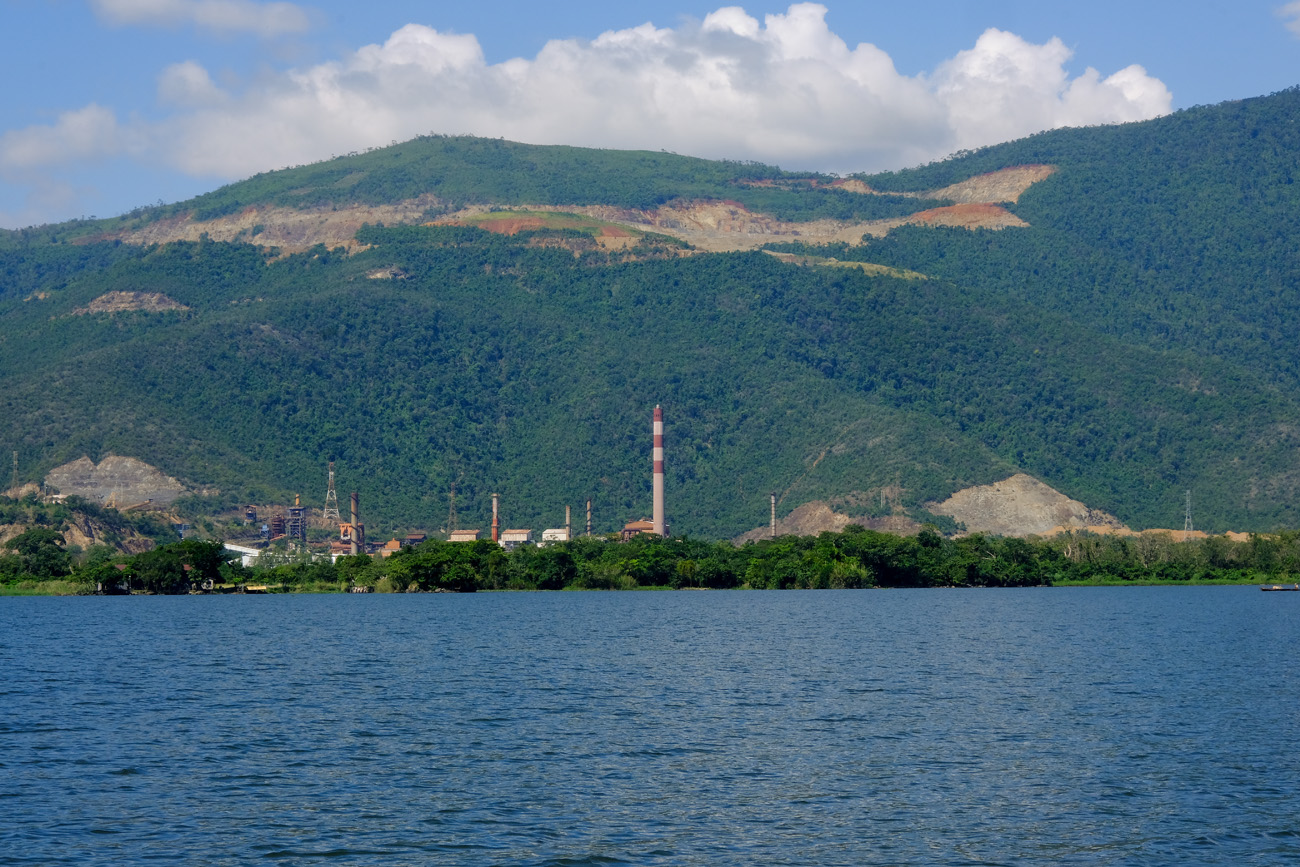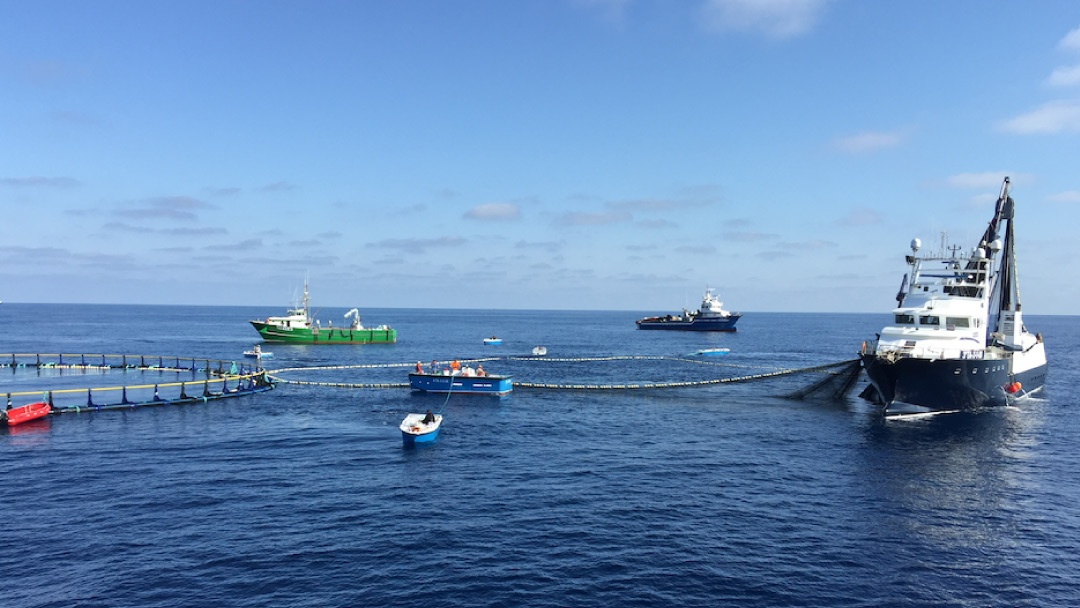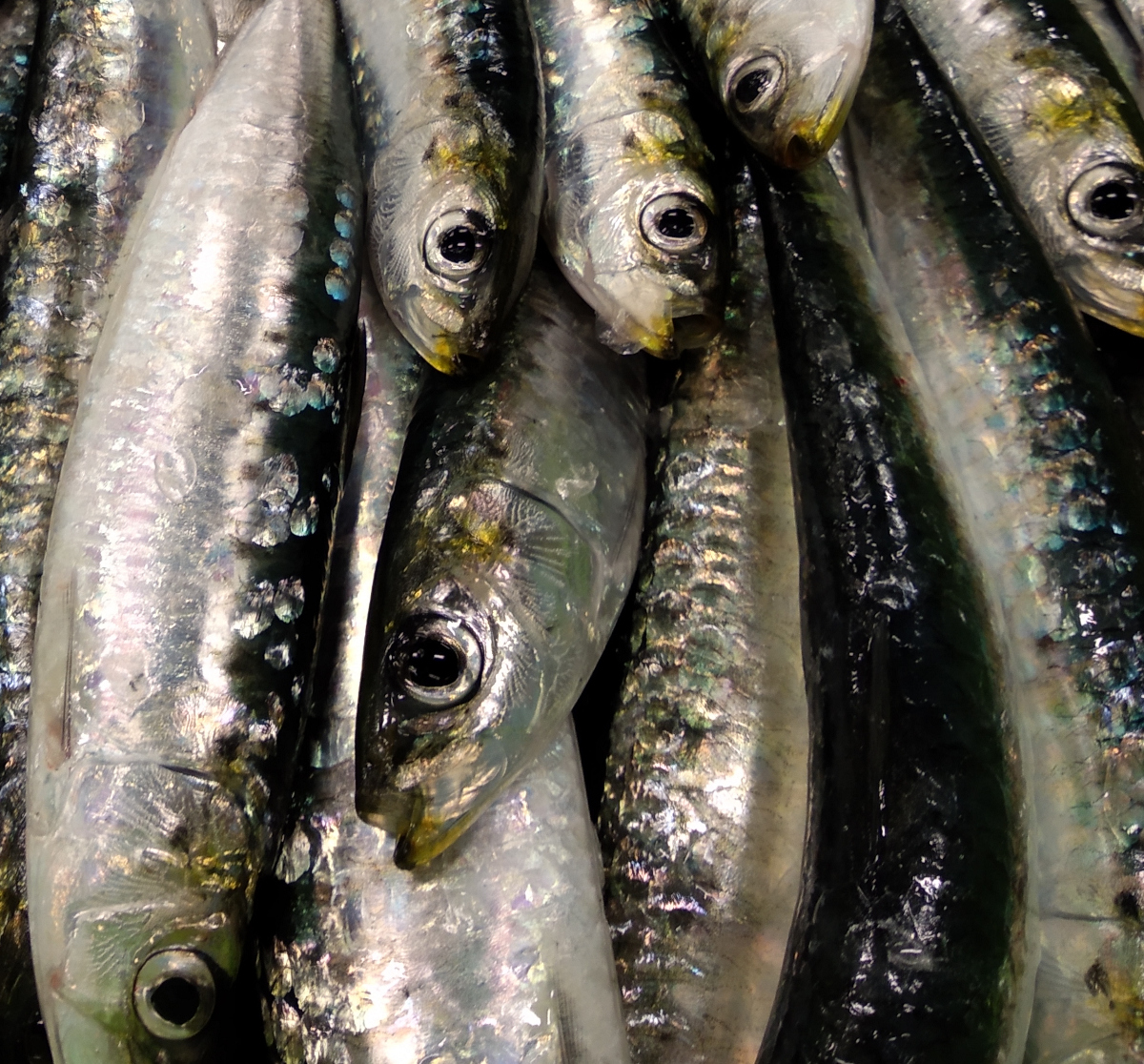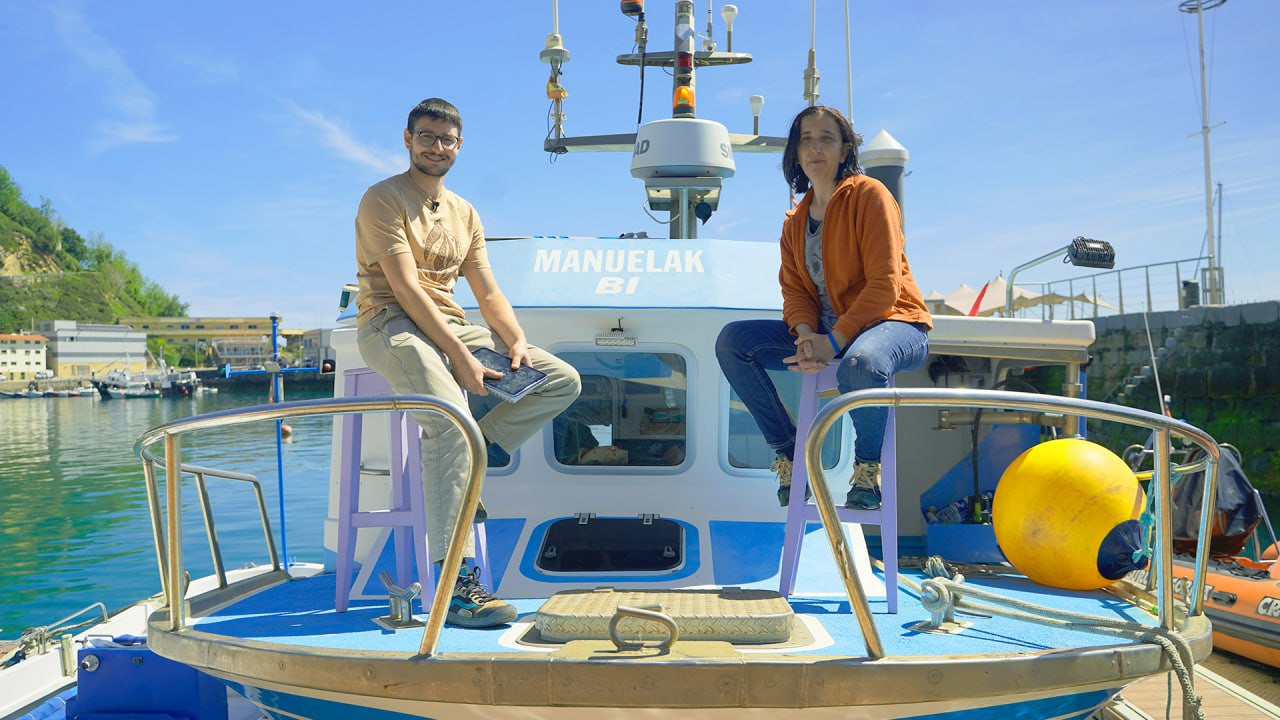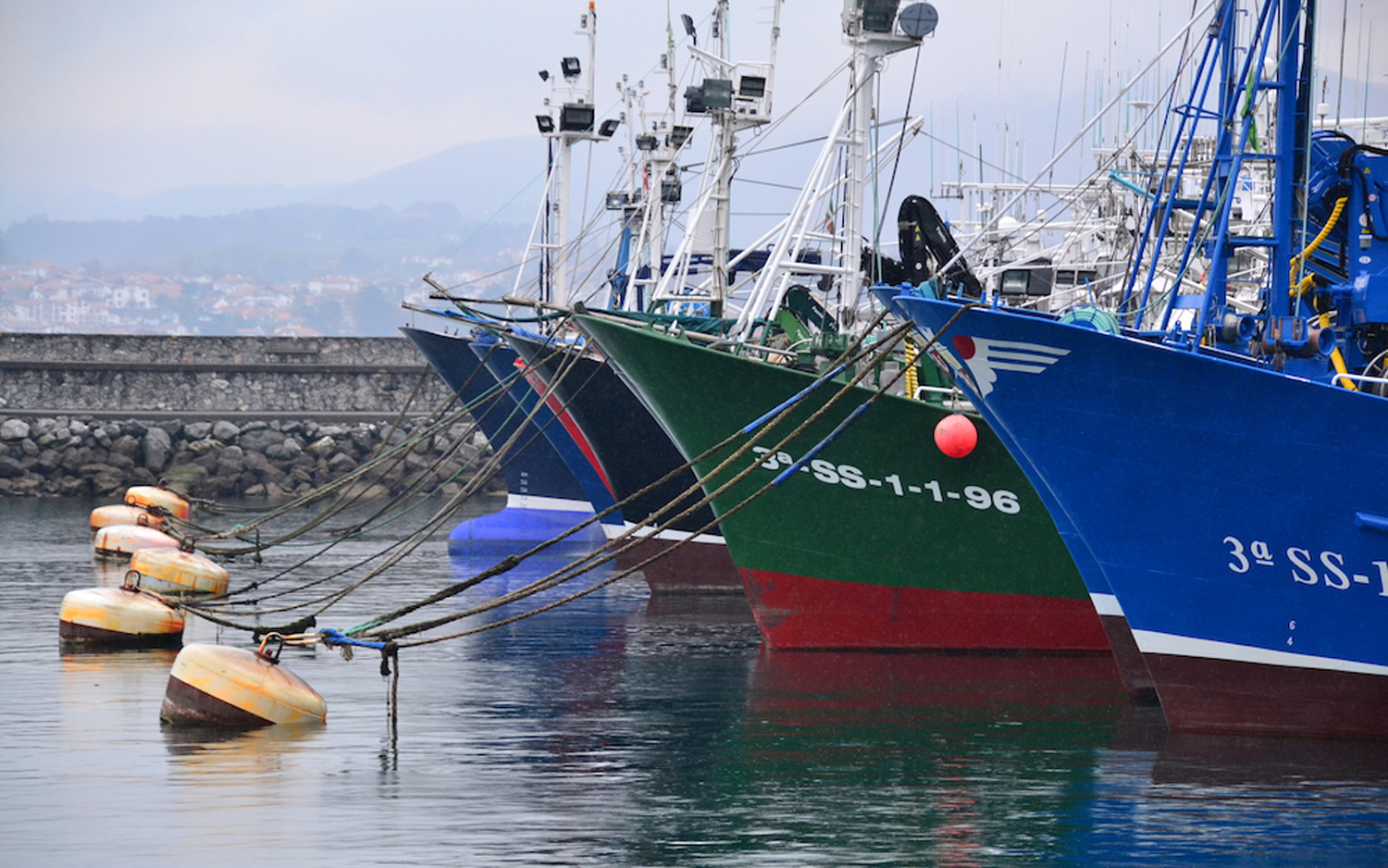Dian (Fisherman): "All the structures of the fisheries sector are in the hands of big shipowners"
- The result of his last battle as a fisherman comes to his retirement: In 2017, the French State has been questioned and has now learned that the administration has been condemned because the allocation of quotas for bluefin tuna does not take account of those caused by the boats in the environment, socially and economically. Most of the quotas are distributed between industrial and intensive fisheries, affecting typical fisheries. The fisherman of San Juan de Luz has fought quickly to transform this reality. He quotes us in the Plaza de Ziburu and explains in detail the maritime reality we do not know.

Let's start today. In 2017 they litigated France and now it has been known that they have won.
At European level, the 2012 Common Fisheries Policy was for the first time a knowledge of ttip fishing. In particular, Article 17 states that quotas should be distributed fairly, taking into account the effects of fishing on the environment, socially and economically, and supporting selectivity or selective fishing. This article has not so far been dealt with by France: it is based only on the primacy of the vessel, distributing the quotas according to the fish in the years 2001, 2002 and 2003. That is why he has been condemned, in particular, by focusing on the allocation of quotas for bluefin tuna. Purse fishermen in the Mediterranean have 80% of the quotas, they are gigantic boats with training nets, they fish the annual quota for a few weeks. They put and fatten fish in some parks to later export them to the Japanese. Another 20% is for the Atlantic, where there is also a large majority of pelagics, i.e. industrial fishing. The pelagics advance from two to two, putting a giant net between them and picking up everything there is.
Take what you have to fish and take the other.
They fish 20 tonnes of tuna, but 10, 15 or 30 tonnes dead, because they are ttipis, degraded or other species. We are against this model. We are by your side, on board the ttipis boats, with the hook or with the ttipi nets. They speak tons, we fish, for us every fish is important. We're not in the same logic, we work locally, integrating ours into the local economy.
Does the young man who wants to live out of fishing have his place?
You can buy the boat, you can also subsidize it, but you may not get quotas. The catch rate is decided at European level, distributed among the Member States and then distributed locally to share among fishermen. The truth is that they are distributed to pelagics and to those who practice the technique of fence, because the administration is based on primacy. This issue makes it possible to demonstrate the existence of other criteria. It is clear that we have not won the guerrillas, but this battle does and we have one more weapon in our hands.
High, seen from the ground, it seems that the concern for sustainable development is also integrated in fisheries.
In all respects, there is talk of “responsible fishing” or “sustainable fishing”, and everything goes in the same direction: for intensive and industrial fishing. Aware that marine resources were on the labour market, Europe decided to dye the fleet and distribute subsidies to break boats in early 2000. The fact is that most of the vessels destroyed had a weak fishing volume, and at the same time, aid for the construction of new vessels went to much larger vessels. Aid was subsequently distributed in favour of dispatch to the slaughterhouse, as the shortage of fish was not more profitable to them. The monetary burden for intensive fishing is enormous. But suddenly, in 2012, Europe takes account of the fishing ttip, which represents 80% of the boats. It is still on paper and at the bottom of the fight we have the guarantee of the rights of this group of fishermen.
Is this the struggle you are waging with trade unionism?
Fishermen may be present in the Producer Organisation, but they must be part of the trade union. We tried to create a union, we reflected with ELB and Confederation Paysann, but we couldn't present it because we couldn't complete the full list. If you are in a large trade union federation such as CGT and CFDT, you are not obliged to form a full list, but if you are ttipi yes. Our enemies also do not form complete lists, but they can present themselves in the same way, being linked to a fat union.
What is the place of ttip fishing in institutions?
In the case of typical professions, the shipowner is at sea, is active, but in the case of large vessels, in the case of companies the shipowner is on land. In other words, it may be in the professional organisations and the reality is that all the structures of the sector are in the hands of the big ones. They say that they are in the interests of all fishermen, but that is not true. We created the LIFE Low Impact Fishers of Europe (Typical Influences European Fishermen) platform among the typical fishermen from different countries, and immediately created the Blue Fish, of course with more resources, and expanding its relations in the economic and political sphere. They're driving a terrible lobbying.
He has used the word “enemy” twice. This word has a lot of weight.
I use the word “enemy” to refer to those who engage in harmful fishing models and tools. To the detriment of the fishery, I take this opportunity to appoint those who have accumulated all the quotas.
What is the port reality of San Juan de Ziburu?
In 1992, when I bought the boat, there were 80 to 100 boats. If there was everything, pelagics, large trawlers, small trades, the latter are the ones that are thrown into the sea every day and those that fish with nets or hooks. Today it's about 30 boats, not many, it's two pelagic pairs. But there are “Franco-Spaniards” from Ondarroa, real pirates, who buy boats and work thanks to France’s quotas. If at the time it was a “war between trades”, it was a war between Ttipis and large and legitimate. Now, since it is not too big – I say that, but among the four boats they have 80% of the verdel quotas and they have the same thing in tuna – it has been changed more often. Let us suppose that there are fisheries of all, such as that of the seaweed, that try to catch up with them. I don't stand it, I tell you. “Have we fought the big ones because they had everything for quotas and now you do the same? !”.
"We small fishermen are at sea, so the big ones make decisions without us."
Being the fish ‘of all and of no one’, to what extent is there solidarity among you?
When I linked myself to this trade, one told me il faut s´aider mais pas céder (we have to help us, but not forget ourselves). There has been long cohesion between us, with agreements not expressed as to the distribution of space or number of hooks. But it went from 1,000 hooks to 1,500 hooks, and from there to 2,000. There are currently some with 3,000 hooks. I am no longer at sea, but, as I hear, these consensuses are disappearing. Always more, always more is going to lose this by logic. I remember when I was going to the farmers' meetings, I was amazed to see myself projecting in ten or twenty years' time. It is true that we are less, that of Donibane Ziburu is a ttipi port. The worst thing is that some believe that they have less and that they will have more fishing rights. But that's not true: it's less and there's less force.
Structure Life at both European and French level as a platform for typical fishermen. Did you think being a fisherman would take you to the military so much?
When I started, I didn't need a fishing permit. One day we were fishing for tuna, another for hake, for sea bass next door, so we were, at the rate of the seasons, more mackerel in February, tuna in late spring, hake in winter … I decided that only in my boat would we fish with hooks, and so we had it from one side to the other. But one day we were surprised that we could not go on like this. They led the change subtly: the big ones who were in the professional organizations knew about the quotas and had not told us anything. They knew that fishing rights in the years 2001, 2002, 2003 would be based on fishing, but we would not. We did not fish tuna in those years, and that is why I was unable to fish this species anymore. We are at sea, therefore making decisions without us. We chose to start talking and organizing with each other to fight within the Producer Organisation. I didn't think I was going to have to fight that hard. Some young people from WWF and Greenpeace contacted us with the typical fisheries in Brittany and the Mediterranean, from which the Artisan Ttipi Fishing Platform emerged.
Do you come from a family of fishermen?
No, I had a Sulatvian father and he compared himself to the coast knowing my mother, who was from Donibane. I was in a photographic lab, and about twenty years old, I met a fisherman, and I went to his ship curiostatizing. I remember the point: “Ohhh, if this is what they have.” It has to be said that these were ideal conditions, the sun rising, the sea in hook fishing. [laughs]. Then I did little jobs, but I got bored. I was increasingly taking up the question “Why wouldn’t I try it?” and I tried and made the garlic path. It's been my little challenge, it's not always been easy.
In your interviews, there's always the question of being a fisherman. Does that bored you?
Yes and no. It is understandable because it is an environment composed primarily of men.
I too will put that question to you.
I can generally say that I have received more aid than I have received. Of course, I am not aware of what has been said from the liver, I am sure I got dirty, but I do not want to know and I do not care. I could say that at least they have not dared to be misogynists. Yes, I’ve heard “go clean!”, “you get better in the kitchen!” or “how do you take on board to urinate?” (to start, what matters! ). Also from the VHF radio used at sea, one covered me with “dirty frog”, with insults of “absorbent penis”, I cut it out by asking the question “Don’t you care if your homicide is going to another direction?”.
He bought his boat in 1992.
Yes, and the years 1993-1994 were disasters. We were about 40 of us fishing for hake with hook and suddenly there was no more fish, all weighed by pelagics. They are prohibited, as the hole is intended for bait fishing. We were told by the Administration that they could do nothing. It was unbearable and many left their profession, or joined another technique, like the bolintxero. We continue for us. I've known tremendously dorp times. Look now, the pelagics have disappeared and the hake has reappeared...
He started as a sailor. When it came to searching for the boat, was being a woman giving her the doors?
I didn't ask in San Juan de Ziburu because I knew the people I knew had full crew. I detected it in the city of Royan, and that's why I got my marine notebook. The maleruski was burned and not carried out. I met a San Juan and I was with him for four months, fishing by net, even though the net doesn't like it so much because it deduces waste. After four years as a sailor, I continued to train as the head of the boat and bought the boat.
From there he formed his crew.
I had quite a few sticks, because I started working with a nice young man named Marko, be he who had a lot of knowledge in the DIY he was fishing. We were two or three, we had three in power. I've sailed mostly with men, but I was seven years with a woman and at some point we were three women. I was proud and very happy to be women alone, I was really swelled by the truth.
I don't know the sea, but you can say it's dangerous?
It is clear that weather is important and can be dangerous. It is clear that the sea is not a lake and that there is movement. Personally, I have endeavoured to take as many risks as possible. But the bad era can come suddenly and that's what we're most afraid of. The galerna can appear abruptly by the wind.
The quote is now. Does it abandon militancy?
Three years ago, he bought me the boat that the young man who had been with me bought over the last four years. I believe that we must leave militancy in the field of fisheries to young people. If you only have retales like you at military time and look at others, there is one thing that goes wrong! There are many reasons to fight: Occupation of Arbona, solidarity with immigrants, etc.

Arrantza handi eta industriala defizitarioagoa da sozialki, ekonomikoki eta ekologikoki arrantza txikiaren alboan; arrantza txikiak baino dirulaguntza publiko dezente gehiago jasotzen ditu; eta are, soilik laguntza horiei esker bizirauten du. Horixe erakutsi du Frantziako... [+]









